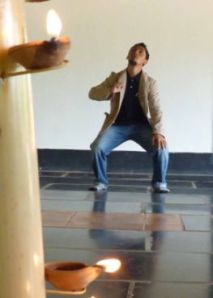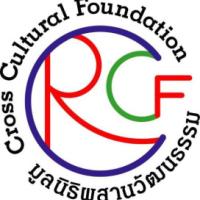Anwar: A Story of a youth from Pattani

Update as of 7 Jan 2017
On 7 Jan 2017, Mr. Anwar Muhamadanwan Hayith was released from Pattani Prison on Pardon as on 1 May, Supreme Court verdict delivered the decision of 12 years imprisonment due to the charges against him of being a member of BRN. He was in the prison for 3 years 8 months and 7 days.
Anwar: A Story from Pattani
Alicia Temple
http://daga.dhs.org/icp/faithpeace/2010/100731a.htm
 https://voicefromthais.files.wordpress.com/2010/08/100731a.jpg?w=107&h=150 107w, https://voicefromthais.files.wordpress.com/2010/08/100731a.jpg 263w" style="padding: 4px 10px 10px 4px; margin: 0px auto; display: block; background: url("/wp-content/themes/pub/mistylook/img/shadow.gif") right bottom no-repeat; border-right: none; border-bottom: none; border-image: initial; border-top: 1px solid rgb(238, 238, 238); border-left: 1px solid rgb(238, 238, 238); height: auto; max-width: 100%;" title="Anwar from Pattani" width="213">
https://voicefromthais.files.wordpress.com/2010/08/100731a.jpg?w=107&h=150 107w, https://voicefromthais.files.wordpress.com/2010/08/100731a.jpg 263w" style="padding: 4px 10px 10px 4px; margin: 0px auto; display: block; background: url("/wp-content/themes/pub/mistylook/img/shadow.gif") right bottom no-repeat; border-right: none; border-bottom: none; border-image: initial; border-top: 1px solid rgb(238, 238, 238); border-left: 1px solid rgb(238, 238, 238); height: auto; max-width: 100%;" title="Anwar from Pattani" width="213">
Anwar uses the drama skills he learned at SOP during
the program’s graduation ceremonies. Anwar hopes
to use the same skills when he returns home to
southern Thailand.
At 26, Muhamadanwan Hayith has experienced a life most people around the globe have only read about and cannot even begin to comprehend. Anwar, as he is known by his friends and family, comes from Pattani, a province in southern Thailand. Pattani, while little known to the outside world, is a place of constant conflict dating back to the 19th century. More recently, however, it has been experiencing what Thai authorities have termed a “separatist movement” led by Muslims who make up the majority of the country’s three southern-most provinces, including Pattani, despite being only 4 percent of the national population.
The Thai government has worked to instill a strong sense of Thai nationalism throughout the country since the 1930s. For Pattani, an area that has more in common with Malaysia regarding language and customs, this nationalism imposed on their unique culture—taking their native language out of schools in the area and forcing Thai traditions on them, for instance—caused resentment among the population of the region, eventually leading to the creation of the Pattani United Liberation Organization (PULO). The 1960s and 1970s saw a fierce rebellion led by the PULO and prompted the Thai government to try to reach an agreement with the people of Pattani in the 1980s through attempts at religious tolerance and the encouragement of political participation.
Despite government efforts, Pattani remained an area of tension. The region still saw itself as being treated as second-class citizens by a government that did not understand their culture or try to integrate them. Relative to the rest of the country, Pattani remains underdeveloped and ill-represented politically. Following two decades of relative peace, the situation in southern Thailand escalated again in 2004 when, following an attack on the security forces in the area, the government declared martial law. In October 2004, local demonstrators were killed and subjugated to inhumane treatment. In April of the following year, the police seized control of a mosque. Demonstrators responded by taking over local government buildings, which the police then surrounded with helicopters and launched an assault of grenades. The attack ended with 111 people killed.
At 26, Muhamadanwan Hayith has experienced a life most people around the globe have only read about and cannot even begin to comprehend. Anwar, as he is known by his friends and family, comes from Pattani, a province in southern Thailand. Pattani, while little known to the outside world, is a place of constant conflict dating back to the 19th century. More recently, however, it has been experiencing what Thai authorities have termed a “separatist movement” led by Muslims who make up the majority of the country’s three southern-most provinces, including Pattani, despite being only 4 percent of the national population.
Anwar grew up amidst this constant conflict. As a student of political science, a journalist and a teacher of Islam, Anwar has seen the conflict escalate and begin to take the lives of his family and friends. In 2005, just a year after martial law had been introduced, the police began to arrest anyone who might be suspected of involvement in Islamic groups. Students of Islam were particularly targeted because the government feared the training they were receiving, making the tragically common error of confusing religious devotion with political indoctrination. At one point, six students were simultaneously arrested. Anwar was not one of them, but shortly thereafter he and nine others were arrested. The previous six had “cooperated” with officials, turning in the names that led to a second wave of arrests. Anwar, a dedicated Muslim and politically inactive 22-year-old man, was put in prison.
Anwar talks about those first days in prison as a time of confusion and anger. He knew he had not participated in the violence and that he was not at fault. He also knew that the government suspected him just because of his religious beliefs—a religion that to him did not dictate violent uprising but rather a life of studying and teaching. As the days dragged on, Anwar realized he was not going to be released soon. The court refused to accept bail, and the situation was bleak. He decided he needed to make the best of the circumstances he was given.
At the time, the prison was full of others who had been arrested at around the same time: young people, teachers and an imam—mosque prayer leaders. Together they were 30 people detained in just two rooms, and together they chose to embrace the desperate situation and began to study. Instead of becoming more angry at the hardships he had been dealt, Anwar learned to thank Allah, praising him for the chance to learn and to grow. He took time to reflect on himself, his life and his community and was able to look at the political environment of the area with a new set of eyes. Anwar began to believe that he was going to be in prison forever, having little hope in the legal process. He adjusted to the shackles on his feet, even learning to play soccer and declaring it to be “no problem”!
With the attitude that prison was going to be his new home, Anwar worked with the other detainees to make it a manageable living place. They petitioned for new food—rice that wouldn’t break their teeth because of the rocks mixed with it and vegetables that still retained some of their nutrients. The prison granted these requests, even providing a Muslim cook so the inmates could be assured that their food was halal—similar to Islam as to what kosher is to the Jewish faith.
More than just believing that the government would not be willing to release him, Anwar started to believe that maybe life would be better in prison. News from the outside world came through family and friends and was full of stories of more arrests and deaths. The situation continued to escalate: schools were not safe, teachers were arrested, loved ones suddenly disappeared. Wearing traditional Muslim clothing was enough reason to be suspect. Anwar was worried about his family. He was worried about what his own life would be like outside of the prison walls.
In 2007, however, the tide changed. For reasons still unknown to Anwar, although he suspects the radical change in government that was occurring in the North, the court suddenly accepted the bail that his family had been trying to offer for the last year, and he was released!
In Thailand, every court case must go through a three-trial process. For Anwar, the first court found him guilty and sentenced him to a 12-year prison sentence. The second court threw out the case completely and set him free. He is still waiting for the third court hearing to occur.
He is not waiting idly though. Shortly after his release Anwar became involved with a media project where he writes articles about culture, language and society. In addition, he teaches Islam at a school for 6 to 12-year-olds; and in 2010, he attended the School of Peace (SOP) in Bangalore, India.
Anwar was a vital part of the SOP family. A steadfast model of religious devotion, his playful personality filled rooms with laughter and life. When asked what was his favorite part of the course, Anwar talked about his newfound love of drama, a powerful tool for reaching people without relying on spoken language. He was excited to integrate this new technique for learning into his teaching at home.
He also cites the lesson Debate, Discuss, Dialogue as a crucial turning point in his experience. Defining dialogue as a form of conversation with a focus on listening changed the way he envisioned conversations in Pattani. Anwar hopes to take this lesson back to his province and help facilitate genuine dialogue about the conflicts in his home.
Despite all that he has already experienced, Anwar is still waiting for the third and final court to process his case. Before returning to Thailand, he was eager to take his experiences from School of Peace (SOP) and integrate them into his daily life at home, and he hopes that it will not be from prison. His SOP family hopes with him.

